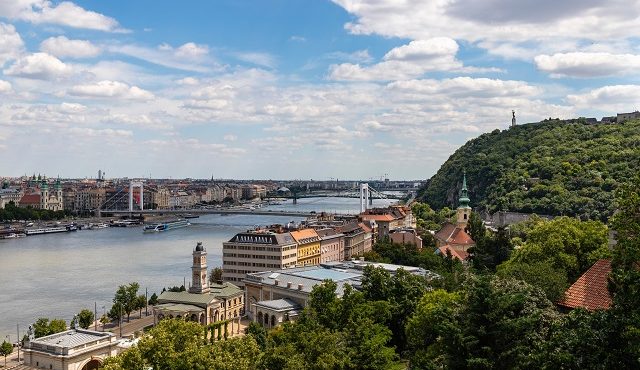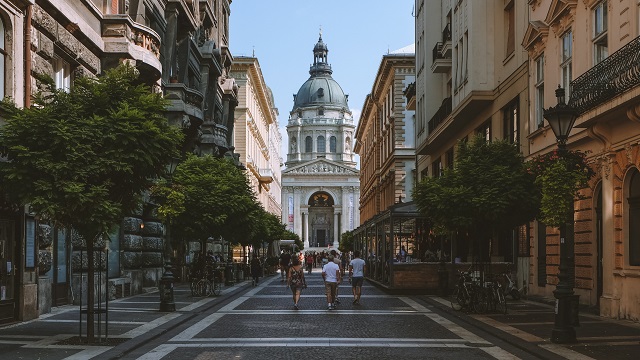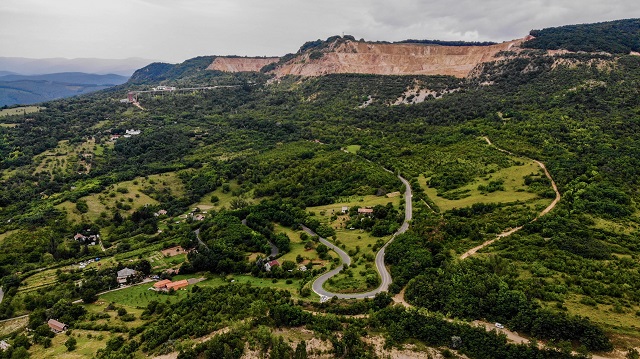Budapest: Hungary’s captivating capital is split by the Danube River into historic Buda and lively Pest. Iconic landmarks include Buda Castle, the Hungarian Parliament, and the Chain Bridge. The city is famous for its thermal baths such as Széchenyi and Gellért, its vibrant nightlife, and sweeping river views.
Eger: Nestled in northern Hungary, Eger is known for its Baroque architecture, medieval castle, and rich wine tradition, particularly the full-bodied Egri Bikavér (Bull’s Blood) red wine. The charming town also features cobbled streets, thermal baths, and hilltop panoramas.
Hortobágy National Park: Hungary’s oldest national park and a UNESCO World Heritage Site, Hortobágy showcases the Great Hungarian Plain (Puszta) with its sweeping grasslands, traditional herding culture, and rare bird species. It’s a window into Hungary’s rural heritage.
Lake Balaton: Often referred to as the "Hungarian Sea," Lake Balaton is Central Europe’s largest freshwater lake. Popular for swimming, sailing, and cycling, it’s surrounded by resort towns like Siófok, Balatonfüred, and Keszthely.
Thermal Baths: Hungary’s rich geothermal resources have given rise to a bath culture stretching back centuries. Budapest alone boasts dozens of public spas, with Széchenyi offering grand Neo-Baroque surroundings and Gellért known for its stunning Art Nouveau architecture and mosaic-tiled pools.
When to go
Hungary is a year-round destination, with each season offering its own distinct charm. Spring (April to June) brings mild temperatures and blooming countryside, making it ideal for sightseeing and outdoor activities. Summer (June to August) is the peak tourist season, with warm to hot weather perfect for exploring Budapest, enjoying festivals, or relaxing by Lake Balaton. Autumn (September to October) is especially scenic, with colourful foliage, fewer crowds, and pleasant weather. Winter (December to February) can be cold, particularly in the east, but Budapest’s Christmas markets, thermal baths, and cosy cafés create a magical atmosphere. The country experiences a continental climate with warm summers (25–30°C), cold winters (0–5°C), and moderate rainfall throughout the year.
Useful information
Currency: Hungarian Forint (HUF). Credit cards are widely accepted, but having cash is recommended for small purchases and in rural areas.
Language: Hungarian (Magyar) is the official language. English is commonly spoken in Budapest and tourist centres, though learning a few local phrases is appreciated in more rural areas.
What makes it special: Hungary is a captivating destination with a rich cultural heritage and natural beauty, offering a travel experience rooted in history and full of modern delights. From the elegant boulevards of Budapest to the tranquil shores of Lake Balaton, Hungary's legacy is in its medieval kingdoms and Austro-Hungarian past.
You’ll find UNESCO-listed sites, world-class wines in regions like Tokaj and Eger, and a thermal spa culture that is woven into everyday life. The welcoming spirit of the Hungarian people and the country’s vibrant culinary scene, complete with hearty dishes and fine desserts, ensure visitors feel both indulged and at home.
Social customs: Hungarians value politeness and hospitality. Greet others with a firm handshake; women may greet with cheek kisses among friends. During meals, wait for the host to begin, and say "Jó étvágyat!" ("Enjoy your meal"). Keep your hands visible at the table and tip 10–15% in restaurants or for services. Respect for elders is important, give up your seat on public transport and use formal titles where appropriate. At religious sites, dress modestly and speak quietly. English is spoken in major cities, but learning a few Hungarian phrases goes a long way in showing respect and appreciation.




